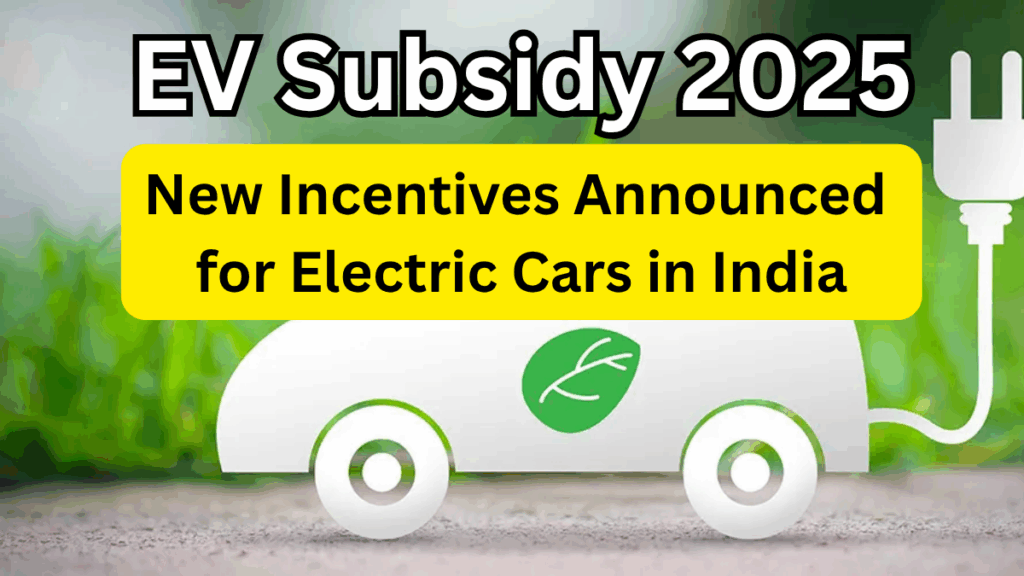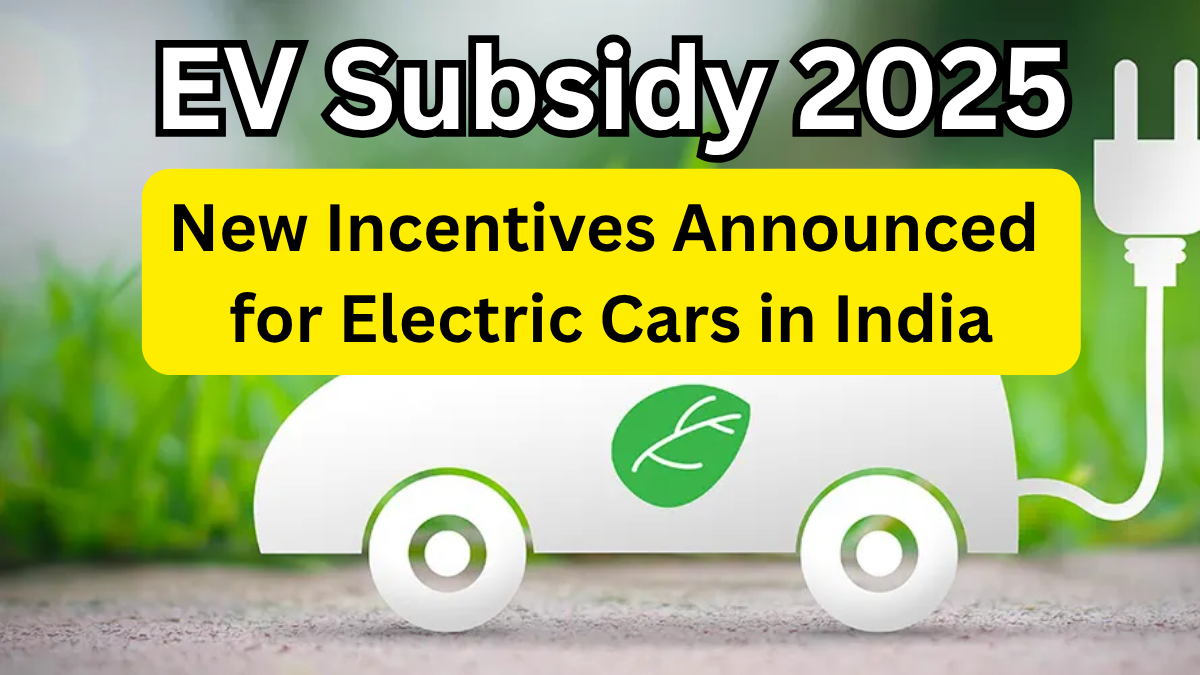India is accelerating toward a greener future, and the government’s latest move reinforces that vision. With the EV Subsidy India 2025, new incentives have been introduced to make electric vehicles more affordable for everyday buyers and profitable for manufacturers. This upgraded electric car scheme is part of India’s broader commitment to sustainability and clean mobility.

What is the EV Subsidy India 2025?
The EV Subsidy India 2025 is a renewed and expanded incentive program designed to promote the use of electric vehicles across the country. It not only reduces the purchase cost for buyers but also encourages domestic production and infrastructure development.
Key objectives include:
-
Making EVs financially viable for the middle class
-
Supporting Indian manufacturers and startups
-
Strengthening public EV charging networks
-
Encouraging widespread adoption in both urban and rural areas
New Benefits for Electric Car Buyers
Thinking of going electric? The 2025 subsidy rollout brings several benefits that could tip the scales in favor of EVs.
Highlights of the scheme for buyers:
-
Subsidy of up to ₹25,000 on small electric vehicles priced under ₹10 lakh
-
₹35,000 to ₹50,000 in incentives for premium EV models with higher battery capacity
-
100% road tax exemption in participating states
-
Waiver of registration charges in select regions
These benefits aim to bring down the overall cost of ownership, making EVs a smart and sustainable investment.
Support for EV Manufacturers and Startups
The electric car scheme also extends its advantages to those producing the vehicles, batteries, and supporting infrastructure.
| Type of Support | Description |
|---|---|
| Production-Linked Incentives | Manufacturers get cash benefits for every India-made EV sold |
| R&D Assistance | Government grants to boost innovation in battery technology and design |
| Import Duty Relief | Reduced taxes on EV parts for local assembly |
| Charging Infrastructure Aid | Co-funding for public and community charging stations across India |
This dual support approach ensures a well-rounded EV ecosystem across the country.
State-wise Adoption and Perks
Many states are offering additional perks along with the EV Subsidy India 2025 to further encourage adoption.
Leading examples:
-
Delhi: ₹1.5 lakh subsidy + one year free charging at public stations
-
Maharashtra: Priority registration, tax rebates, and permit fast-tracking
-
Tamil Nadu: Exclusive EV zones and manufacturing parks
-
Karnataka: Charging stations every 10 km on state highways
These state-level schemes complement the central policy and help achieve broader adoption targets.
Why This Matters to You
The new electric car scheme benefits more than just the environment. It brings real savings and lifestyle improvements to Indian families.
Key benefits include:
-
Lower vehicle purchase costs
-
Reduced fuel and maintenance expenses
-
Quiet and smooth driving experience
-
Cleaner air and lower carbon emissions
If you’re planning a new vehicle purchase in 2025, going electric could be both a smart and responsible choice.
Things to Consider Before Buying an EV in 2025
Before you commit to buying an electric car under this new subsidy scheme, here are a few important considerations:
-
Confirm your state’s participation in the EV subsidy program
-
Verify if your preferred EV model qualifies
-
Apply early, as funds may be limited and allocated on a first-come basis
-
Check if the subsidy includes support for home charging installation
FAQs
What is the EV Subsidy India 2025?
It’s a government-led program that offers financial incentives to buyers and manufacturers of electric vehicles, aiming to promote green mobility and reduce vehicle emissions in India.
Who qualifies for the electric car scheme in 2025?
Personal EV buyers, automakers, and EV infrastructure companies are all eligible, provided they meet the criteria laid out in the updated scheme.
How do I claim the subsidy?
Buyers can usually claim it through dealerships at the time of purchase. In some states, online portals may be provided for verification and reimbursement.
Which electric vehicles are eligible for the subsidy?
The final list will be published by the government, but it is expected to include EVs from manufacturers like Tata, Mahindra, Hyundai, and various EV-focused startups.
Click here to learn more
